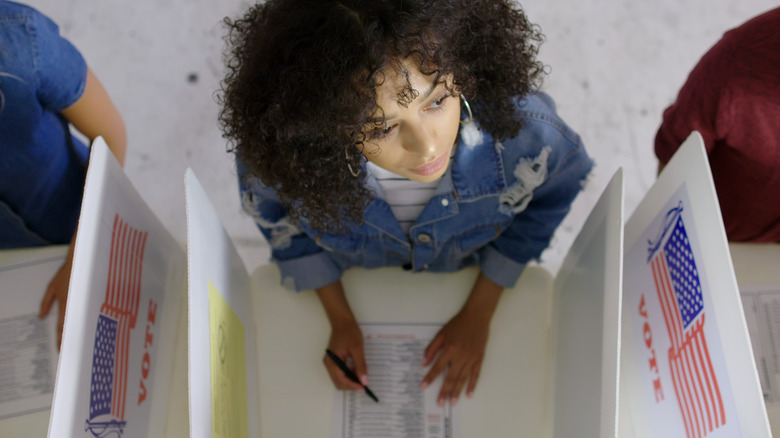Have you ever made a decision and then forgotten the trigger or reasoning behind it? Maybe you walked into a room but couldn’t recall why, or perhaps you ordered one meal at a restaurant when you actually meant to order another. These moments of brain fog and forgetfulness are generally normal, according to Psychology Today. Operating on autopilot where you’re not fully present while doing an activity, or trying to take in too much information at once, can cause temporary mental glitches.
In other instances, people forget their original decision entirely and go on to justify one they never even made. This is a psychological phenomenon called choice blindness (per BBC). Researchers studied this phenomenon in a 2005 study published in the journal Science, where they showed participants two faces at a time, asking them to choose the more attractive one. Later, the researchers asked participants to explain their reasoning, though they swapped some of the images, showing participants the faces they didn’t choose. The research subjects justified why they “chose” the face being displayed, not even noticing that it wasn’t their original pick.
Choice blindness was also put to the test by some of the same researchers in a 2024 study published in PLOS One that focused on political views. Once again, people were led to believe they chose a stance different from the opinion they actually expressed, and 92% defended the altered stance when questioned.
Choice blindness in the real world

Choice blindness isn’t something that only exists in psychology studies — it can affect how you live your life. A 2024 research paper published in Synthese explained that environmental influences can play a significant role in how people behave, which is why people can be so easily misled in choice blindness studies. The paper argues that “we should all strive to be better informed about the subtle cues that may influence or even determine choices and attitudes, so as to regain some control over the way in which, and the extent to which, our choices and attitudes can change.” In other words, be mindful of how friends’ opinions, political advertisements, and social media might sway your thoughts. Then, question these beliefs to make sure they truly line up with your values.
Choice blindness may also prove just how cognitively flexible humans are – and that can be a good thing. According to Psychology Today, cognitive flexibility allows people to adapt to changes quickly, find creative solutions to problems, and perform better in a variety of situations.
Changing your mind and being able to imagine alternate perspectives can be advantageous in a variety of settings. But if choice blindness can teach us anything, it’s that we may not even be aware of when we’re changing our minds or being manipulated in the first place.








